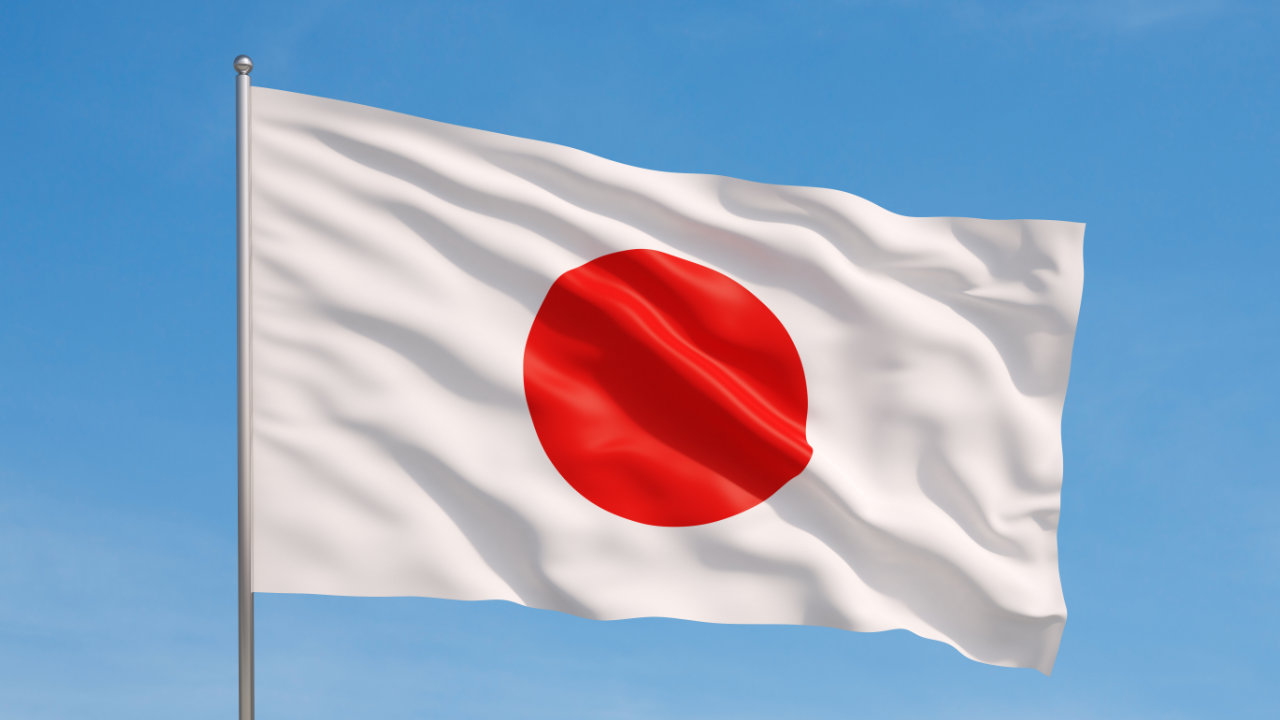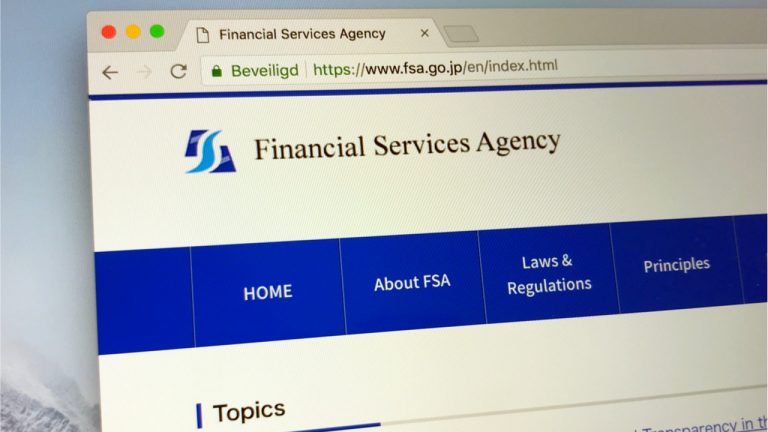 Cryptocurrency exchange FTX has announced the acquisition of Liquid, which operates a regulated Japanese exchange, Quoine. The two companies “expect to work together to provide products and liquidity to clients in the Japanese and global markets.” FTX Acquiring Liquid to Provide Services to Japanese Customers Crypto exchange FTX is entering the Japanese crypto market. FTX […]
Cryptocurrency exchange FTX has announced the acquisition of Liquid, which operates a regulated Japanese exchange, Quoine. The two companies “expect to work together to provide products and liquidity to clients in the Japanese and global markets.” FTX Acquiring Liquid to Provide Services to Japanese Customers Crypto exchange FTX is entering the Japanese crypto market. FTX […] Japan’s top financial regulator, the Financial Services Agency (FSA), is reportedly planning to propose legislation to restrict stablecoin issuance to banks and wire transfer companies. Crypto service providers involved in stablecoin transactions, including wallets, will also be brought under the financial regulator’s oversight. Japan to Tighten Stablecoin Regulation Japan’s Financial Services Agency (FSA) is planning […]
Japan’s top financial regulator, the Financial Services Agency (FSA), is reportedly planning to propose legislation to restrict stablecoin issuance to banks and wire transfer companies. Crypto service providers involved in stablecoin transactions, including wallets, will also be brought under the financial regulator’s oversight. Japan to Tighten Stablecoin Regulation Japan’s Financial Services Agency (FSA) is planning […]
The move comes as the Bank of Japan wants to roll out a digital yen CBDC by the end of next year.
According to The Nihon Keizai Shimbun (Nikkei), one of the world's largest financial newspapers and the entity behind the Nikkei 225 stock index, Japan's Financial Services Agency, or FSA, will propose legislation next year restricting stablecoin issuance to only bank and wire transfer companies. Theoretically, this would prevent entities such as Tether (USDT), which does not operate as a bank and is only regulated in the British Virgin Islands, from conducting business with Japanese customers.
However, the new proposed rules would only affect some stablecoin issuers. For example, USD Coin (USDC) issuer Circle plans to become a crypto bank chartered in the United States amid a regulatory crackdown. While operating as private companies alone, stablecoin issuers are typically exempt from financial reporting, auditing or regulatory oversight, leading to notable speculative claims that Tether may not have enough reserves to back USDT.
In addition, the FSA also plans to toughen regulations in areas such as preventing transfers of criminal proceeds, verifying user identities and reporting suspicious transactions for both stablecoin issuers and wallet providers.
Private stablecoins, however innovative, compete directly with central bank digital currencies, or CBDCs, and their adoption. In Japan, the central bank plans to roll out the digital yen, dubbed the 'DCJPY,' by the end of next year. It is supported by a consortium of nearly 70 companies, including the country's largest financial institutions, which have all joined in on a trial of the DCJPY. There is currently a stablecoin digital yen in circulation, called the 'GYEN", and another pending launch backed by Circle.

Seung-beom Koh said that fintech experts across the globe “find it difficult to see virtual currencies as a financial asset."
Seung-beom Koh, a nominee for chairman of South Korea’s Financial Service Commission (FSC), does not regard cryptocurrencies as a financial asset.
In a press meeting with local journalists, Seung-beom said that fintech experts from prominent organizations such as the G20, the International Monetary Fund and others “find it difficult to see virtual currencies as a financial asset, and think they could not function as a currency.”
Seung-beom's comments coincide with the ongoing surge in crypto trading among young investors, who primarily invest seeking short-term profits, according to The Korean Times. Investors also see cryptocurrencies as a fair chance to buy homes by countering skyrocketing property prices.
Koh also pointed out that excessive household credit could negatively impact South Korea’s economy. As of March 2021, the country’s household credit witnessed a 9.5% hike to reach 1,765 trillion won i.e. approximately $1.52 trillion. As a means to curb the increasing household debt, Koh said:
“The FSC will push ahead with existing anti-debt measures and come up with additional steps, if needed, by mobilizing all available policy means.”
Related: South Korean FSC denies plans to shut down 11 crypto exchanges
South Korean authorities were reportedly planning to shut down numerous crypto exchanges under the suspicion of operating fraudulent collective accounts and borrowed-name accounts.
However, on Aug. 9, the FCS reached out to Cointelegraph to deny such claims of suspending crypto exchanges. The representative stated that the 11 exchanges in question “are required to open up and use real-name accounts for the purpose of collecting deposits.”
Just last month, South Korean authorities warned crypto exchanges to voluntarily register with local authorities by Sep. 24 or risk facing jail time or hefty fines.

The new regulation will be designed to provide better protection to Japanese investors.
Japan’s financial regulator, the Financial Services Agency (FSA), has started discussions around imposing stricter regulations for cryptocurrencies in an effort to provide better protection to Japanese investors.
Back in July, the FSA established a dedicated section, as well as a panel of financial experts to help the government oversee digital and decentralized finance. The agency will also be responsible for keeping track of developments in cryptocurrencies and central bank digital currency (CBDC) initiatives, as reported by Jiji Press.
The financial regulator intends to replace and impose the new crypto regulations by mid-2022. With the new regulations in place, the FSA hopes to bring stability to the crypto market while ensuring no damage to the development and innovation within the ecosystem.
FSA had revised a similar law in 2019, which had effectively mandated crypto exchanges within Japan to implement new features for safeguarding the user’s assets. This decision was linked to the hack of Bitpoint, a Japan-based crypto exchange that saw a loss of $32 million.
In addition to the recent hack of Liquid crypto exchange, the FSA further believes that operators within the country are yet to implement sufficient Anti-Money Laundering and price volatility measures.
Related: Japan's FSA asks cryptocurrency industry group to introduce FATF Travel Rule
Earlier this month, the FSA announced that it will adopt the FATF’s Travel Rule by 2022, which will require all service providers dealing in cryptocurrencies to share transaction data. The Travel Rule was introduced in 2019 as a preventive measure against money laundering and terrorist financing with cryptocurrencies.
The drive will be supported by the Japanese Virtual Currency Exchange Association “to establish a necessary system” to accurately implement that travel rule.

Japan’s newly appointed Financial Services Agency Commissioner Junichi Nakajima believes Bitcoin is a quick way to transfer cash, but people use BTC for speculation and investment.
The new commissioner of Japan’s Financial Services Agency (FSA), Junichi Nakajima, believes the country needs to think carefully before making Bitcoin (BTC) and other cryptocurrencies more accessible to the general public.
Nakajima believes crypto assets like Bitcoin have the potential to benefit the public as a quick and cheap way to transfer money, he said in an interview with Bloomberg. However, most of the crypto assets are currently used for speculation and investment instead.
That’s why the Japanese regulator believes careful consideration is required before making it easier for the general public to invest in crypto assets. Nakajima said that the high volatility of crypto markets due to not having underlying assets is a primary reason for the Japanese regulator not allowing crypto investment trusts.
Japan is known for ramping up its regulatory efforts following the infamous hack attack on Tokyo-based crypto exchange Coincheck, which resulted in th loss of 523 million NEM coins, worth approximately $534 million.
Since then, the country became a difficult market in which to do business for the registered crypto exchanges, Nakajima admits. The current regulatory framework on crypto exchanges effectively protects customers and meets the Anti-Money Laundering requirements. But the business situation of most of the registered crypto exchanges “is rather rough,” Nakajima added.
Related: US–Japan digital trade deal should include crypto: American think tank
The Japanese government is aiming for global cooperation to regulate digital currencies. To this end, the Japanese Ministry of Finance is reportedly seeking to increase its staff. The FSA also established a new unit last month to monitor broader crypto markets and focus on decentralized finance.
Major crypto exchanges like Binance and Bybit are not among Japan's 31 registered crypto exchanges. The FSA issued a formal warning letter to Bybit in May and Binance in June, accusing them of offering crypto exchange services in the country without registration.
 The British Virgin Islands-based Bybit Fintech Limited has announced the cryptocurrency derivatives exchange is introducing an updated know-your-customer (KYC) policy on July 12. Bybit notes that it already had certain KYC requirements implemented, but the new system reform is meant to “improve security compliance for all traders.” Bybit Says Companies and Individual Clients Mandated to […]
The British Virgin Islands-based Bybit Fintech Limited has announced the cryptocurrency derivatives exchange is introducing an updated know-your-customer (KYC) policy on July 12. Bybit notes that it already had certain KYC requirements implemented, but the new system reform is meant to “improve security compliance for all traders.” Bybit Says Companies and Individual Clients Mandated to […]
Crypto exchange giant Binance is the latest platform to receive a warning from regulators in Japan for operating in the country without a license.
Crypto trading platform Binance may once again be heading for a standoff with financial regulators in Japan.
On Friday, the Financial Services Agency (FSA) issued a warning to Binance, accusing the company of offering crypto exchange services in the country without registration. The agency also served a similar warning to crypto derivatives trading platform Bybit back in May.
After China banned crypto trading back in 2017, Binance, along with many other Chinese exchanges, moved to Japan.
Soon after, the FSA made Japan become the first jurisdiction to develop clear-cut crypto exchange rules, which, among other requirements, mandated compulsory national registration and licensing for platforms looking to operate in the country.
While exchanges such as Houbi complied with the FSA’s directives, Binance elected to move its operations to Malta in March 2018. As previously reported by Cointelegraph, Binance first announced plans to restrict customers from Japan back in January 2020.
Japan’s amended Payment Services Act, which went into effect in Q2 2020, also provided greater clarity for crypto exchanges in the country, albeit with more stringent regulatory provisions.
A planned partnership with Japan-based digital asset exchange TaoTao also fell through in October halting any reentry attempts for Binance into the country’s market. Japanese financial services giant SBI eventually acquired TaoTao a few days after ending negotiations with Binance.
The crypto exchange giant has come under scrutiny from regulatory agencies in several jurisdictions. The company reportedly came under investigation by both the United States Internal Revenue Service and the Department of Justice.
Related: CZ responds to reports of Binance investigation: Story has no ‘teeth’
Binance stock token trading also drew attention from German and British securities watch-dogs back in April. In September 2020, the Financial Action Task Force characterized Binance’s jurisdiction hopping as being indicative of a crypto exchange looking to avoid regulations.
However, Binance CEO Changpeng Zhao has previously responded to allegations of unlawful activity, stating that the exchange complies with Know Your Customer and Anti-Money Laundering policies.
Tweeting on Thursday, Zhao published a letter of commendation from the United Kingdom’s South East Regional Organised Crime Unit praising the exchange’s efforts in the fight against darknet narcotics vendors.
Binance did not immediately respond to Cointelegraph’s request regarding the warning.
 Coinbase is now registered as a cryptocurrency exchange to operate in Japan. The Japanese financial regulator has approved Coinbase to trade five cryptocurrencies. Japan’s top financial regulator, the Financial Services Agency (FSA), announced last week that it has registered Coinbase as a crypto exchange service provider based on the revised Fund Settlement Act. According to […]
Coinbase is now registered as a cryptocurrency exchange to operate in Japan. The Japanese financial regulator has approved Coinbase to trade five cryptocurrencies. Japan’s top financial regulator, the Financial Services Agency (FSA), announced last week that it has registered Coinbase as a crypto exchange service provider based on the revised Fund Settlement Act. According to […] The Japanese government’s Financial Services Agency (FSA) has issued a warning to the crypto derivatives exchange Bybit claiming that the trading platform is allowing residents of Japan access to the exchange. The news follows the Bank of Japan Governor Haruhiko Kuroda criticizing digital currencies for speculation. Japan’s FSA Warns Bybit Fintech Limited Japan’s top regulator […]
The Japanese government’s Financial Services Agency (FSA) has issued a warning to the crypto derivatives exchange Bybit claiming that the trading platform is allowing residents of Japan access to the exchange. The news follows the Bank of Japan Governor Haruhiko Kuroda criticizing digital currencies for speculation. Japan’s FSA Warns Bybit Fintech Limited Japan’s top regulator […]